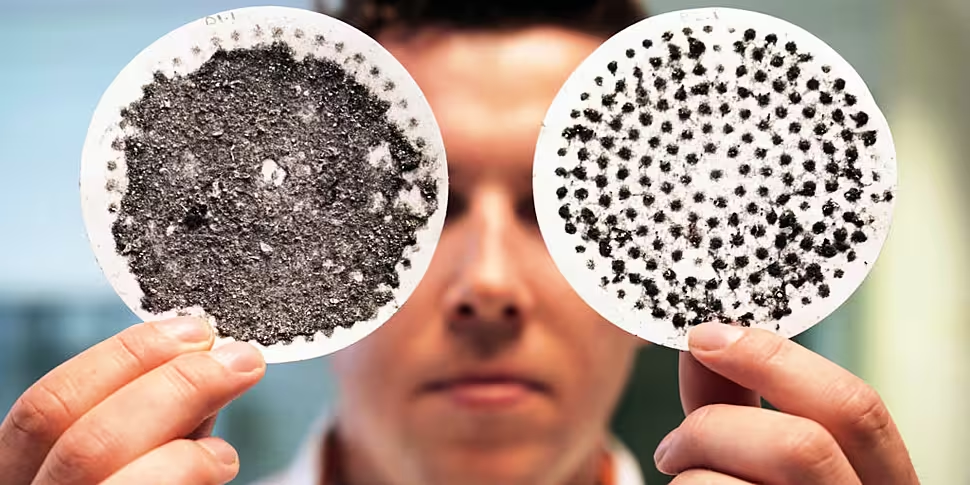A delicate wash cycle releases more plastic microfibres from clothes than a standard cycle, new research has found.
Scientists at Newcastle University discovered that 800,000 more fibres were shed during a delicate cycle than in a normal wash.
Their study established that it is the volume of water used in a wash, and not the spinning action of the machine, which releases the plastic microfibres.
Clothes that contain materials such as nylon, polyester and acrylic release these minuscule fibres when they are washed.
The plastics are often so small that they drain from machines and enter the sea.
The scientists, working with Procter & Gamble, found that their research of polyester clothes disproved previous studies which showed that it was the speed of the drum which caused the release of the plastics.
The findings were published in the academic journal Environmental Science and Technology.
Findings
PhD student Max Kelly, who led the research, explained: “This is because the high volume of water used in a delicate cycle which is supposed to protect sensitive clothing from damage actually ‘plucks’ away more fibres from the material.”
The study found that the plastics reached deep levels in the ocean, and the laundry industry is often recognised as a contributor to this type of pollution.
Mr Kelly said: “By avoiding high water-volume-to-fabric washes such as the delicate cycles and ensuring full wash loads then we can all do our bit to help reduce the amount of these synthetic fibres being released into the environment."
"Hopefully, these findings may also be used by manufacturers to influence the design of future washing machines and reduce our plastic footprint.
"Over time these changes could also see a global reduction in the amount of energy and water required to wash our clothes," he said.









